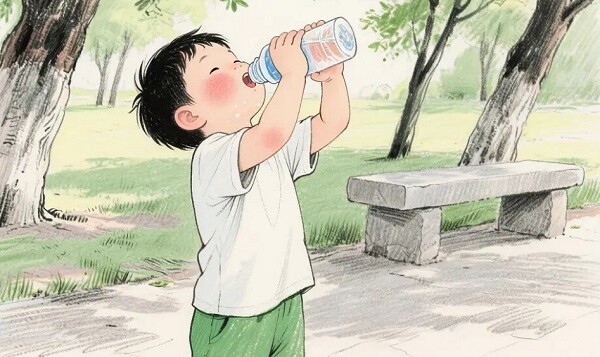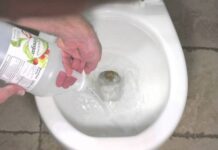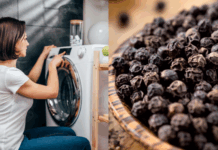Summer is here, and with it comes hot, humid weather that can be challenging for children’s health. To ensure your child stays healthy and has a fun summer, there are some important considerations to keep in mind.


Sun Protection is Key
Children’s skin is three times thinner than adults’, so it’s crucial to protect their entire body from the sun. Their sensitive skin is more susceptible to UV ray damage, hence the importance of sun protection.
If possible, avoid taking your child outdoors between 10 am and 4 pm, as the sun’s rays are most intense during this period, increasing the risk of sunburn.

When going outdoors, dress your child in long-sleeved cotton clothing, a wide-brimmed hat to protect their neck and face, and long pants. For older children, physical sunscreen can be applied, but avoid adult sunscreens as their ingredients may not suit sensitive skin. Remember to cleanse with warm water and baby oil when returning indoors.
Always carry sunscreen, water, and snacks when heading out to ensure your child stays hydrated and energized.

Sun protection and hydration are key.

Nutrition and Mosquito Protection
During hot summer days, we tend to sweat more and lose fluids quickly. However, children often prefer sugary drinks and fruit juices over water, which can lead to excessive sugar intake and health issues. While sweet drinks and juices can be tasty, they may not provide adequate hydration and essential electrolytes for your child’s development.

Ensure your child’s diet is nutritious and well-balanced.
Encourage your child to drink enough water (about 500 ml with a pinch of salt) to stay hydrated and replenish electrolytes. Instead of sugary drinks, offer water or add a twist of fresh lemon for flavor. Include watermelon, cucumbers, cherry tomatoes, and blueberries in their diet to provide essential vitamins and minerals.
Another summer concern is mosquitoes. Their bites can be irritating and disrupt your child’s sleep. Remember to use mosquito nets on strollers when going out in the evenings.

Personal Hygiene
Summer is a breeding ground for bacteria, especially in hot and humid conditions. As children enjoy playing in the water and crawling on the floor, the risk of bacterial infections increases. Here are some measures to protect your child’s health:
Handwashing: Wash your child’s hands before and after meals, after using the toilet, and after playtime. Use soap and clean water to effectively remove bacteria. Instilling good handwashing habits will help your child understand the importance of personal hygiene from an early age.
Daily Baths: During summer, children tend to sweat more, especially when active. Daily baths help keep them clean and remove dirt and bacteria that accumulate on the skin. After playing, especially if they’ve been in contact with water or mud, bathe them to reduce the risk of skin infections.

Prioritize your child’s health and comfort.
Change Sweaty Clothes: Wearing damp clothes can promote bacterial growth and increase the risk of infections. Ensure your child always has clean and dry clothes, especially after playtime or physical activity.
Avoid Street Food: Barbecued foods and ice cream may contain bacteria that can upset your child’s stomach. Their digestive system is sensitive and easily irritated by inappropriate food choices. Opt for homemade meals that are hygienic and nutritious.
Encourage Safe Eating: Choose fresh, safe, and nutritious foods. Fruits and vegetables are excellent choices to boost vitamin intake and strengthen their immune system against bacteria.
In summary, while summer brings joy to children, it also presents health risks. By focusing on personal hygiene and safe eating practices, you can ensure your child stays healthy and enjoys the summer to the fullest. By guiding and instilling good habits, you’re helping your child develop holistically during these formative years.
What Students Need to Do to Stay Safe as They Return to School
The complex nature of the nCoV outbreak has led to schools taking proactive measures by temporarily closing to prevent further spread. It is imperative that parents also play a role in educating their children on essential preventive skills to ensure their safety and well-being as they return to school.
What is a Dry Bath? Understanding the Concept and Its Benefits.
Dry bathing is an alternative method of personal hygiene that does not involve the use of water. It is a unique and often necessary practice in certain situations. This intriguing concept is worth exploring further, as it offers a fascinating insight into innovative ways of maintaining personal care and cleanliness, especially when water is scarce or inaccessible. Discover the ins and outs of dry bathing and how it can be effectively utilized, particularly when caring for the unwell.






































